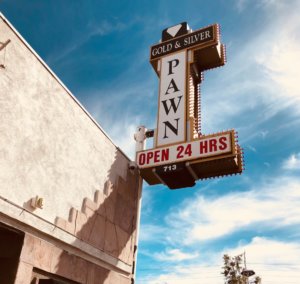Home ∙ Credit Score Ranges ∙ 525 credit score
FICO classifies a 525 credit score as poor. Improve it by focusing on payment history, managing credit utilization, and paying off existing debts. Set up automatic payments to ensure timely payments if you struggle with due dates.
A poor credit score looks bad to financial institutions and can make it challenging for a borrower to get funding.
Individuals with poor credit scores typically have credit histories with bankruptcy, late payments, or too much outstanding debt. If you have a bad credit score, it’s in your best interest to work on improving it. The good news is that there are several methods to boost credit scores! Keep reading to learn about some financial tools you can use to improve your creditworthiness and get an average credit score.
Key Takeaways for a 525 Credit Score
Overview of Your
Credit Rating
525 is classified as a “poor” score by most credit scoring models. Poor credit signifies that a borrower is a subprime borrower and has a history of risky financial behavior.
Borrowing Options With a
525 Credit Score
Borrowers with subprime credit may have a hard time qualifying for unsecured loans. While it’s not impossible to get approval for an unsecured loan with low credit, rates and terms will be very unattractive.
Improving a 525
Credit/FICO Score
Improving a bad credit score starts with financial tools. You could work on establishing a positive credit history by using secured credit cards or credit builder loans. You can also reduce your personal debt and avoid late payments.
Is a 525 Credit Score Good?
A “good” score depends on the credit scoring model a lender uses. FICO is most commonly used to determine creditworthiness, and good FICO Scores start at 670. The average credit score in 2023 was 718, which means most people have a better score than 525.1 In order to get a good score, a borrower must raise their current score by at least 145 points.
What Can You Get Approved for?
Self
4.6 Ninja Star Rating
- Build credit and savings
- No hard credit pull
- Automatic payments
- Reports to 3 main credit bureaus
Self is a lender that offers an easy and responsible way for borrowers to establish payment history and build credit, while building savings, through a credit builder account. It’s a small installment loan, but the money is yours (minus interest and fees), and even securitized by a CD.
Start Building Your Credit Today!
*Credit Builder Accounts & Certificates of Deposit made/held by Lead Bank, Sunrise Banks, N.A., First Century Bank, N.A., each Member FDIC. Subject to credit approval.
Katapult Lending
4.4 Trustpilot Rating
- lease purchase plans
- Simple process
- No hidden fees
- No credit required
Katapult offers lease purchase plans and paths to ownership for consumers who typically don’t have many financing options. If you’re considering a large purchase but you don’t have great credit, then Katapult may be able to help. They offer solutions with no credit required, and no late fees.
No Minimum Credit Score Required
Yendo
4.4 Google Rating
- Vehicle-secured credit card
- Up to $10,000 in revolving credit
- Quick & easy pre approval
- Build credit with responsible usage
Yendo is the first vehicle secured credit card. This means you can still get approved for their credit card, even with a less-than-perfect credit score. They use the value of your car to help determine your credit limit. They offer credit limits up to $10,000 with no hard credit inquiry.
Must Meet Their Approval Criteria
You could get approved for various types of loans with a 525 score, such as:
Personal Loans
Personal loans are typically unsecured, although you may find online lenders that offer secured installment loans. A personal loan is a loan option for all kinds of borrowers. Some personal loan lenders specialize in offering bad credit loans, which are meant for borrowers who find it challenging to get approved for traditional loans. While you could qualify for a personal loan with bad credit, you will have to compare lenders to find the best rates and terms.
Bank Loans
You may be eligible for certain types of bank loans with poor credit scores. However, it may be challenging to get unsecured loans from the bank due to strict requirements. Most banks have a high minimum credit score requirement, which means you may need at least an average credit score to qualify. If you do get approved for a bank loan, you are likely to get higher interest rates and short repayment periods.
Credit Cards
It’s possible to qualify for an unsecured credit card with a low credit score. However, credit cards typically have higher interest rates than 500 credit score loans. Unfortunately, high rates end up causing financial hardship for borrowers. According to Synchrony Bank, roughly 4.7% of customers are 30 days or more behind on their credit card bills.² If you want to work on improving a bad credit history, it may be better to apply for a secured credit card.
Here’s a table that illustrates how secured credit cards work, explaining the key aspects of their functionality:
Aspect | Description |
Security Deposit | You pay a deposit upfront which typically sets your credit limit. This deposit acts as collateral for the credit provided. |
Credit Limit | The credit limit is usually equal to the amount of the security deposit, though it can vary depending on the card issuer. |
Usage | You use it just like any other credit card, for purchases, online transactions, and bills, while staying within the credit limit. |
Interest Rates | These cards often have higher interest rates compared to unsecured cards, especially if your credit is poor. |
Fees | There may be annual fees or other charges, similar to unsecured cards. |
Monthly Payments | You must make at least the minimum payment each month on the balance you owe, similar to unsecured credit cards. |
Credit Reporting | Issuers report your payment history to credit bureaus, affecting your credit score based on your payment timeliness. |
Upgrade Options | Responsible use can lead to eligibility for an unsecured card with the same issuer, often with the return of your deposit. |
If you want to get an average credit score, then you should know that these options are highly recommended for bad credit borrowers:
- Discover it® Secured Credit Card
- Bank of America® Customized Cash Rewards Secured Credit Card
- U.S. Bank Cash+® Secured Visa® Card
- Self Secured Visa® Credit Card
- Chime Secured Credit Builder Visa® Credit Card
- Capital One Quicksilver Secured Cash Rewards Credit Card
Auto Loans
Auto loans are secured loans that may be easier to get than other loans if you have bad credit. Auto loan amounts range depending on your income, down payment, and the lender. If you have poor credit, you may only be eligible for a small auto loan to buy a used vehicle. But remember that rates are generally always higher for used cars due to depreciating value.
Products To Help Improve a 525 Credit Score
These financial products can help you get an average credit score:
Credit Monitoring
Monitoring your credit score can help you stay motivated and stay on track toward getting an average score. There are many free ways to view your credit score. Many credit card companies provide free credit scores online, but you may also get monthly updates on your credit card statements. Remember that fluctuations are normal, but an unexpected large decrease may be a sign of fraudulent activity.
Credit Builder Loans
A credit builder loan is an installment loan that helps borrowers save money and build better credit. A lender will place your loan amount in a savings account, and you will have to make monthly payments until the loan is paid off. Once you pay off the loan amount, the lender will give you access to the savings account. This financial tool can make it easy for borrowers to start an emergency fund while building a positive payment history.
Credit Counseling
Credit counseling organizations can provide you with extensive financial knowledge and guidance. A credit counselor can help you build a budget, set a debt repayment plan, and provide information on workshops that will help you increase your financial literacy. To start working on getting an average credit score, you can try the Financial Counseling Association of America or the National Foundation for Credit Counseling.
Benefits of Improving Your 525 Credit Score
These are some of the benefits you can get by obtaining an average credit score or higher:
Better Rates and Terms
A high credit score can help you get lower interest rates, longer repayment periods, and better credit card rewards. Higher credit scores indicate that you are financially responsible, which means a lender does not have to provide strict terms to ensure they don’t lose money. Better rates and terms can help you save money and reduce your financial stress.
Higher Credit Limits
Borrowers with credit accounts in good standing and good credit scores can get higher credit limits. A high credit limit can reduce your credit utilization rate, which affects your FICO Score by 30%. Credit utilization percentages represent the amount of credit you are using compared to your total available credit limits. Using more than 30% of your total credit accounts can decrease your credit score. However, maintaining good credit can help you get higher limits that reduce your credit utilization.
More Housing Options
You can get more housing options if you increase your credit score. Landlords conduct credit checks when someone applies for a rental property. Low credit scores may prevent you from getting approval because landlords could think you lack the financial security to pay your rent on time. A higher credit score may help you get quickly approved for your preferred housing option!
How To Improve Your 525 Credit Score
Here are a few ways you can start to improve your credit score:
Reduce Your Debt
Your outstanding credit card debt directly affects your credit score. If you want to improve your credit history and current score, it’s critical to prioritize debt repayment. You can work on quickly paying down your debt by using one or more of these methods:
- Follow the debt avalanche or snowball method
- Consolidate debt with a debt consolidation loan or balance transfer loan
- Pay more than the minimum every month
- Make more than one monthly payment
Check Your Credit Reports
Your credit reports may have errors on them that can negatively affect your credit. While you could hire a credit repair company to help you repair your credit reports, you don’t have to. You can get your free credit report from each of the credit bureaus every 12 months. If you notice an error on a credit report, you can file a dispute to have it removed or corrected. Approximately eight million times a year, consumers contact one of the big three credit reporting agencies to dispute information.³ Most credit bureaus will update your credit report within 30 days of the dispute.
Avoid Late Payments
Late payments can appear on your credit report and decrease your low credit score further. If you want to boost your credit, it’s important to avoid any late or missed payments. One easy way to avoid missing a due date is to sign up for autopay. Autopay is a free feature that most financial institutions offer. By signing up for autopay, you agree to have monthly payments automatically deducted from your payment method on file.
FAQs About 525 Credit Scores
What factors most commonly lead to a poor credit score?
Understanding what affects your credit score can help you avoid pitfalls. Common factors include missed payments, high credit utilization rates, a short credit history, multiple credit inquiries, and having an unbalanced mix of credit accounts. Knowing these can help you make informed decisions to improve your credit score.
How often should I check my credit score and credit history?
Regular checks on your credit score and credit history can alert you to any changes or errors, allowing you to address issues promptly. It’s a good idea to review your credit history at least annually, as you’re entitled to a free report from each of the major credit bureaus once every year. If you’re actively working to improve your credit or planning to apply for a personal loan or credit card, consider checking more frequently.
What are the short-term consequences of having a bad credit score?
Having a bad credit score can affect your financial life in several immediate ways. You might face higher interest rates on loans and credit cards, which can make borrowing more expensive. Additionally, credit card applicants with lower scores might receive lower credit limits. Understanding these impacts can motivate you to take steps toward improving your credit.
Can poor credit affect my employment opportunities?
In some cases, yes. Employers in many industries might check your credit history as part of the hiring process, particularly for positions that involve financial responsibilities. While they do not see your credit score, a problematic credit history might influence their decision, underscoring the importance of maintaining a healthy credit profile.
How long will it take to improve my credit score from poor to average?
Improving your credit score is a gradual process, and the time it takes can vary widely depending on the specific issues and your financial actions. On average, it can take several months to a few years to rebuild a credit score from poor to average. Consistent efforts like paying bills on time, reducing debts, and using credit responsibly are key to lifting your score.
What Interest Rate Can I Get With a 525 Credit Score?
Unfortunately, a 525 credit score is subprime. Subprime scores are usually considered risky, which means you may get less than attractive rates on credit cards and loans. Unless you absolutely need emergency funding, it’s better to work on improving your credit before submitting any new loan applications.
Can I Buy a House With a 525 Credit Score?
Many people use mortgage loans insured by the Federal Housing Administration to buy a home with low credit scores and/or low income. FHA loans are backed by the government, so mortgage lenders are more willing to work with borrowers who cannot qualify for conventional mortgages. Eligible borrowers with scores between 500 and 579 can provide a 10% down payment on a qualifying property.
For more information on FHA loans, check out the U.S. Department of Housing and Urban Development (HUD) website.




